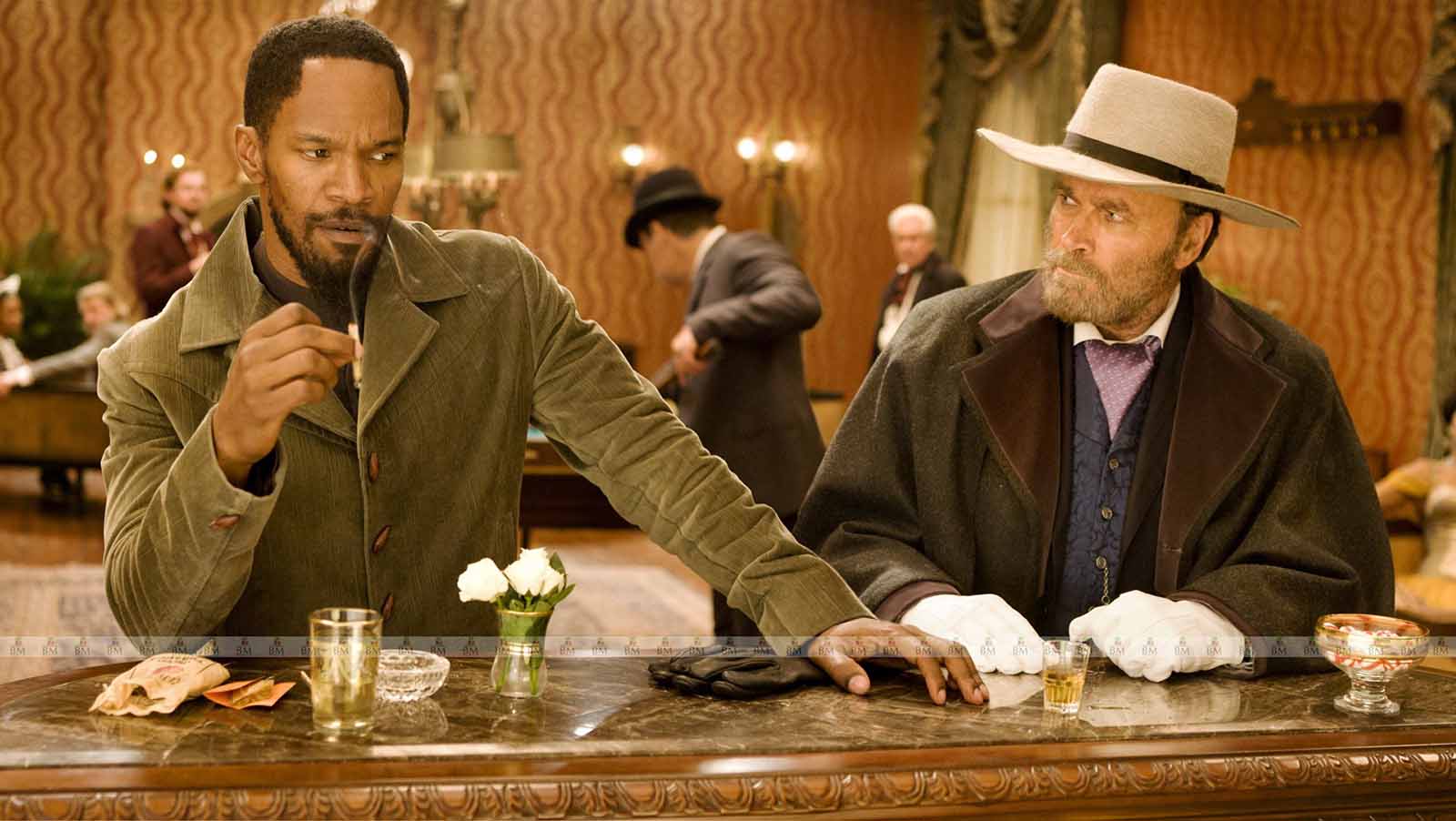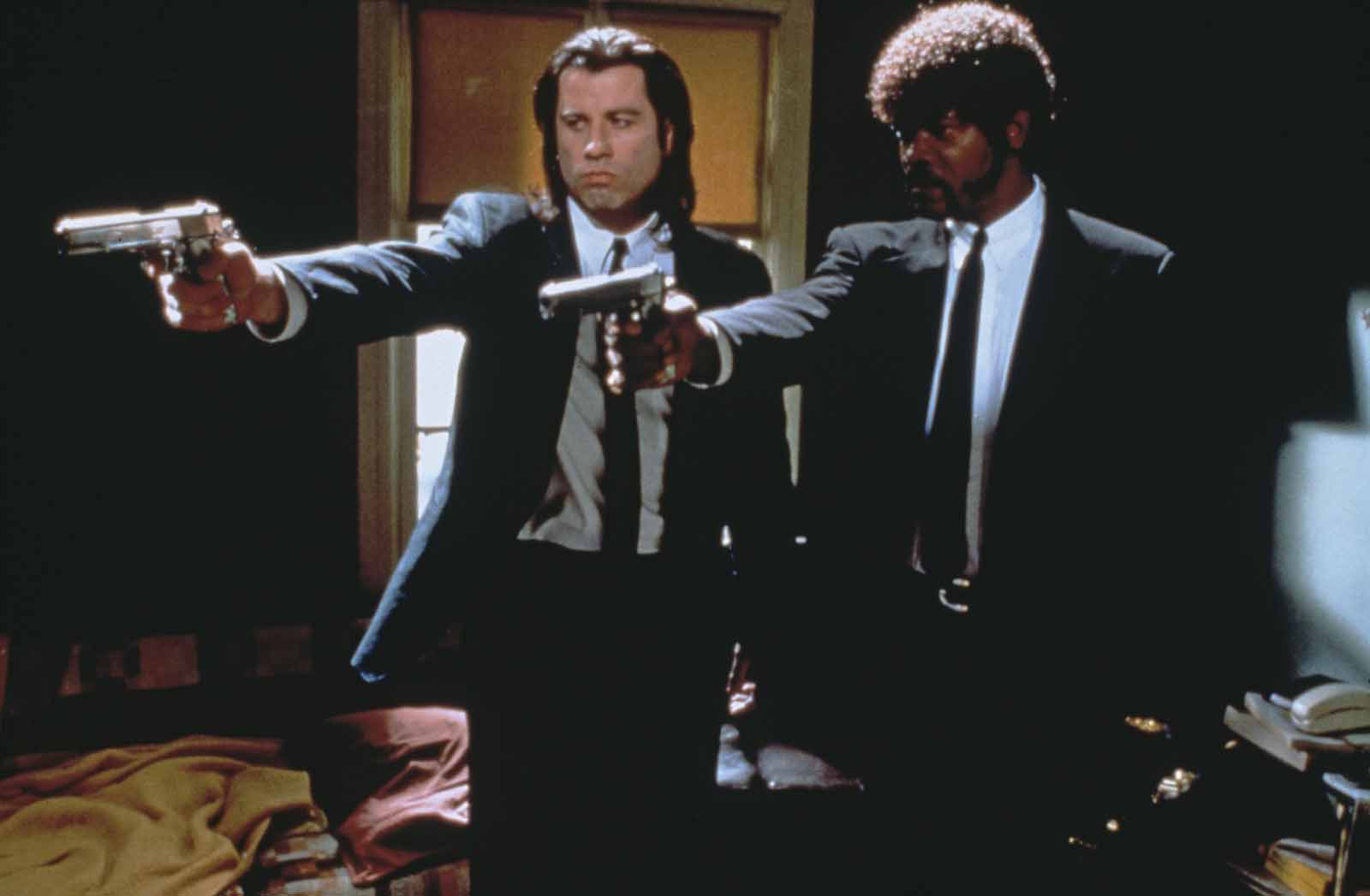
Here are all the Quentin Tarantino movies, ranked for your quarantine
We’re deep in the throes of quarantine, but while wading through the uncertainty of the world ahead, one man continues to charm us with his cinematic consistency. Quentin Tarantino hath provided a juicy oeuvre dripping with coolness and endless quotability – and a hell of a lot of gunplay. Best of all, some of his filmography is currently available to stream on Netflix. That’s a bingo!
For cinephiles and casual viewers alike, Tarantino has become part of our filmic culture, with each project bringing something fresh and familiar yet subtly absurd to the palate. His movies frequently call into question the themes of observation, morality, and consequence, which counterbalance some of his most monstrous character studies.
But because of Tarantino’s cult popularity, die-hard fans are in constant battle over the ranking of his films, so we here at Film Daily have done the dirty work of ranking his work so you can get to the good stuff: binging.
The ranking below is categorized via least favorite to most.

10. The Hateful Eight (2015)
Tarantino’s meanest, most cynical film to date, The Hateful Eight hinges on the auteur’s signature compelling style, yet circumvents any sense of joy.
More malevolent than clever, with each of its monstrous characters trapping us rather than compelling the narrative forward, The Hateful Eight falls into the category of overindulgent and rather lethargic. But hey, 70mm film provides epic scope to the otherwise small, bitterly cold world of the movie.

9. Death Proof (2007)
This relatively short thriller in the double-bill jamboree Grindhouse falls short in its ambivalence about violence towards women. It’s predatory, deeply sadistic, and fetishistic.
Death Proof’s gaudy setup climaxes in cheap thrills, but thankfully the last 30 minutes provide some kickass stunt work. In theory Death Proof should be about female empowerment, but we’re dredged through mind-numbing misogyny for two-thirds of the feature before we get there.

8. Django Unchained (2012)
Django has some of Tarantino’s strongest thematic work as he juxtaposes racial power dynamics with the trappings of a spaghetti western. It’s also his most financially successful, and plays off the theme of historical revisionism that we first see in Inglourious Basterds.
Though namely about the hideousness of white supremacy, Django Unchained’s narrative falls into Tarantino’s comfort zone by way of moral convolution. But the context of the storyline is anything but trite—America can always use a dose of confrontation.

7. Once Upon a Time in Hollywood (2019)
Often cited as a draggy hangout movie – the closest Tarantino can come to that description – Once Upon a Time in Hollywood embarks deep into the movie and TV industry of Los Angeles in 1969, when the studio system had ceased to exist, and the presence of Charles Manson made the city tremble.
Once Upon a Time in Hollywood is funny and captivating, but the suspense lacks the depth of its themes. The movie collapses onto itself without the proper momentum, but remains a pleasant experience nonetheless.

6 – 5. Kill Bill Vol. 1 & 2 (2003 – 2004)
Though two vastly different films in tonality, Kill Bill as a magnum opus is a huge homage and love letter to Japanese action films. It’s dazzling to watch despite the cold-blooded revenge—and with much of the emotional payoff present in its second volume—Kill Bill is an irresistible bloodthirsty saga.
Kill Bill is a mashup of every genre jammed together, but in the best way possible.

4. Inglourious Basterds (2009)
An epic mess, but glorious in its casting of Christoph Waltz as Nazi Colonel Hans Landa, Inglourious Basterds erupts in layer after layer of power dynamics. Tarantino plays to his strengths for much of the film, but what makes Inglourious so damn riveting is the tension created by dialogue. It’s a leap in maturity that shouldn’t go unobserved, amounting in a film about revenge in which the movie itself is the revenge.

3. Reservoir Dogs (1992)
Reservoir Dogs is a gripping feature debut that established Tarantino’s voice. With game-changing dialogue but a rather modest plot, Reservoir shines beautifully in its portrayal of a group of thieves being torn down from their thrones rather than holding them up as the epitome of cool.
Reservoir Dogs hits at themes that Tarantino would return to as he focuses on power dynamics, masculinity, and self-destruction, all encapsulated in mostly one-set piece.

2. Jackie Brown (1997)
Adapted from an Elmore Leonard novel, Jackie Brown pushes Tarantino out of his comfort zone in his only film with soul and meticulously crafted romance. It actually focuses on a connection between two people as the backdrop to the narrative, forcing Tarantino to radically alter his style.
There’s still some violence thrown in, but Jackie (Pam Grier) as an underdog protagonist who’s going to make it known that she’s the coolest person in the movie is what really shines.

1. Pulp Fiction (1994)
Exuberantly self-aware, Pulp Fiction wants you to know that you’re watching a movie. It’s pure brash and guiltless pleasure. It’s wildly unpredictable upon first viewing, constantly throwing curveballs at the audience – but that’s kind of the point.
Pulp Fiction changed people’s ideas about American independent cinema, while somehow maintaining harmony throughout its sticky narrative structure. It’s brazen and in the moment and a masterpiece that is still attempting to be imitated 25 years later.



